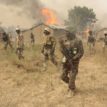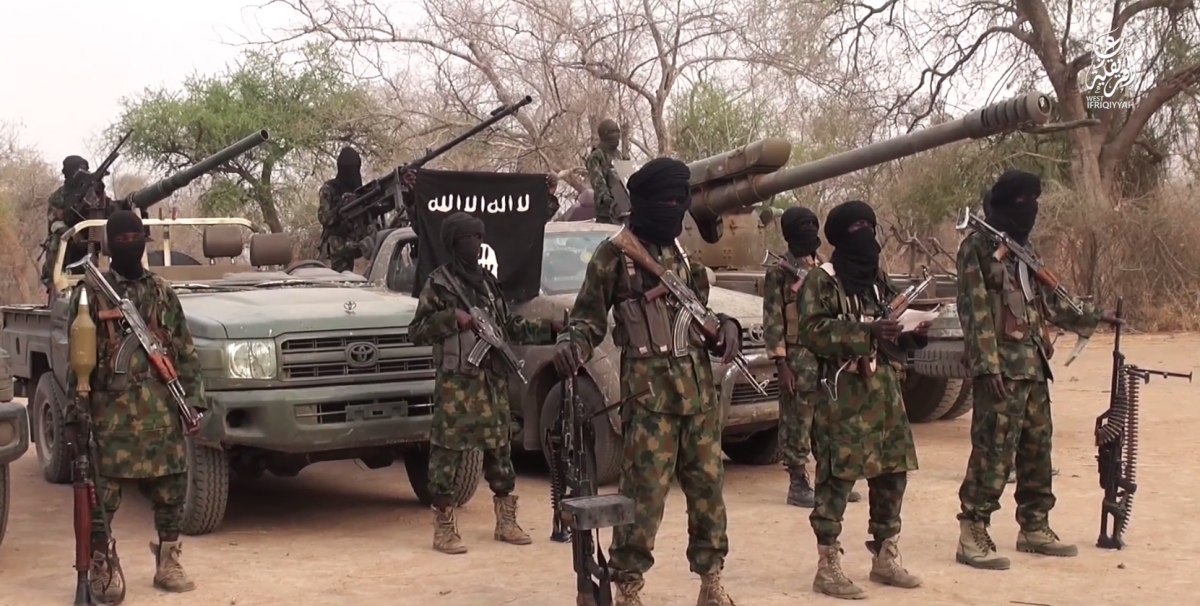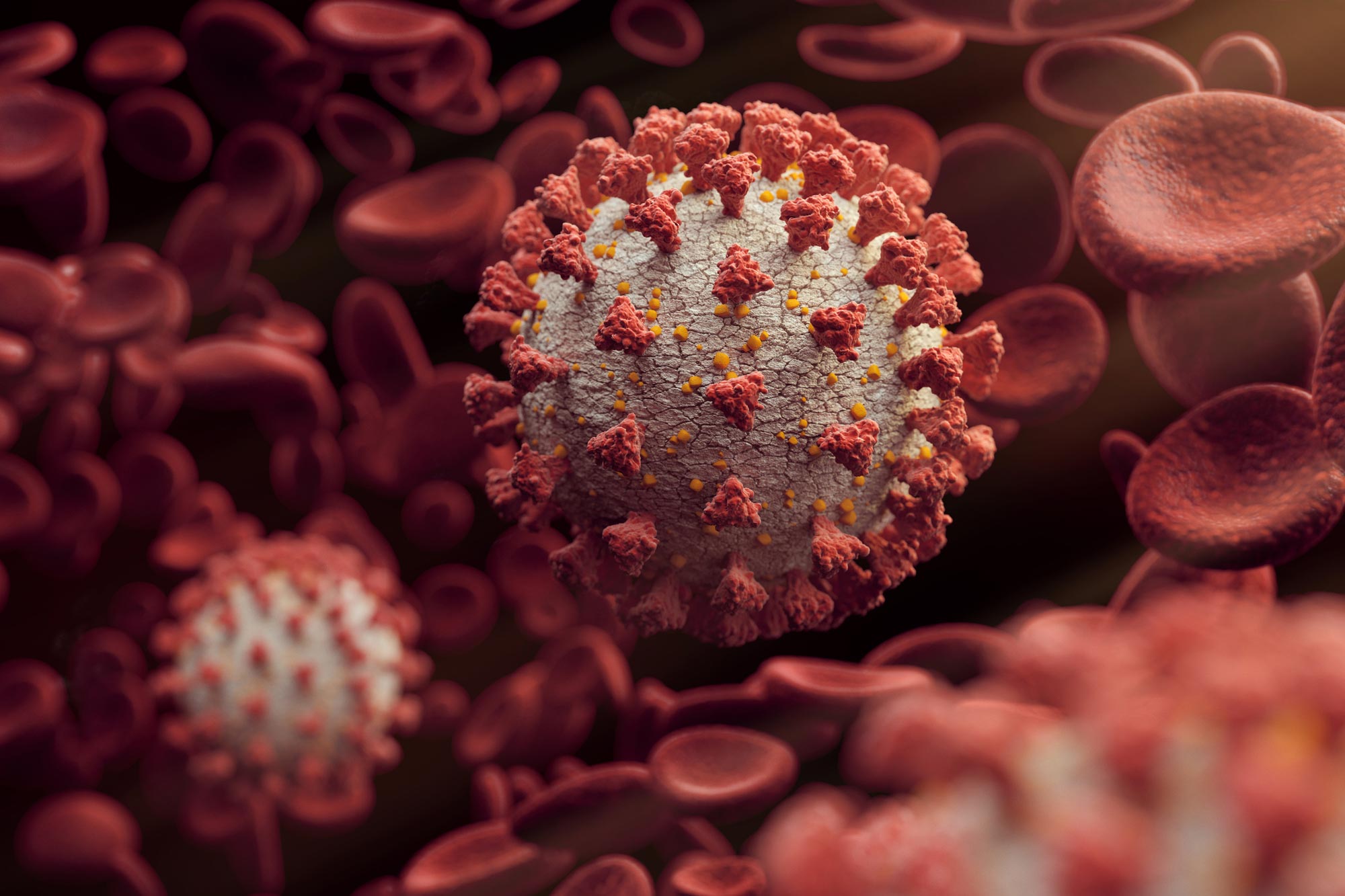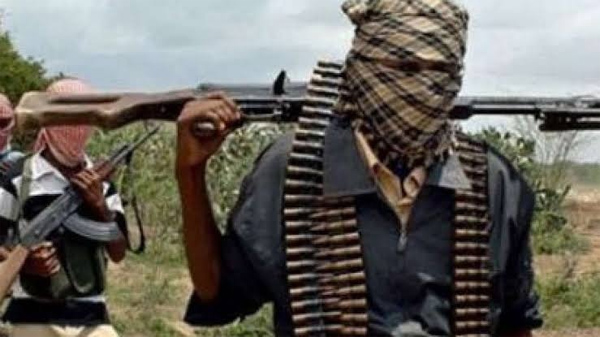
 …ECONOMY: Debt servicing may consume FX earnings
…ECONOMY: Debt servicing may consume FX earnings
…INSECURITY: Nation in search of peace
…FOOD INSECURITY: Crisis unavoidable
By Nkiru Nnorom, Prince Okafor,
Olayinka Ajayi, Idrisu Yakubu & Esther Onyegbula
As Nigerians welcomed the New Year with little or no optimism, top players in key areas have expressed concern that except the Federal Government addresses alarming insecurity, rising inflation and food insecurity among others, the nation risks having a miserable 2021.
Drawn from the economic, security, health, agriculture, and political sectors, they identified critical issues that would shape 2021 in Nigeria, stating that the way government handles them may determine how far the nation would go in the New Year.
The factors highlighted include banditry, Boko Haram insurgency, oil prices, inflation, food insecurity, kidnapping, COVID-19, aftermath of #ENDSARS, and discontent over zoning of 2023.
Last year, Nigeria had experienced high level of insecurity, especially in the northern part, food crisis, nationwide social unrest resulting from #ENDSARS protest, recession occasioned by the drop in oil prices and COVID-19 pandemic, sharp divisions along ethnic lines, and diminished purchasing power resulting from inflation among others.
Social crisis
Going by the cumulative effect of these and the seeming failure of government to arrest the situation, they warned that should the trend continue this year, Africa’s most populous nation may be headed for a social crisis.
Recall that the country didn’t fare better in the 2020 Human Development Index, HDI, value for 2019, which was 0.539, implying a low ranking in the human development category. Nigeria was positioned at 161 out of 189 countries.
The National Bureau of Statistics, NBS, had in May 2020, said 82.9 million Nigerians, 40 percent of the country’s population, was classified as poor.
To avoid a further slide in 2021, experts told Sunday Vanguard that government must stand up to its responsibilities and offer real governance instead of what was described as lip service and propaganda.
ECONOMY:
Managing Director/CEO, Highcap Securities Limited, David Adonri, said: “Recent international reports placing the country as the 26th largest economy in the world stated that Nigeria’s GDP declined to $448 billion in 2019. Due to current Stagflation, it is expected to decline further in 2020. The result shows that Nigeria has failed woefully to achieve its Vision 2020 objective of being the 20th largest economy in the world by 2020. In 2021, the global recovery is likely to pull Nigeria along. Against this background, the country’s macro-economy might start to show signs of recovery in the third quarter.
“Inflation rate is expected to decline later in 2021 due to the anticipated rise in crude oil price and opening of borders. If insecurity remains pervasive, it could have an impact on inflation. If the monetary policy remains expansionary amidst weak insecurity and low production activities, inflation will not reduce. Imperfections in the economy, like obnoxious pricing by under-regulated industries, will continue to exacerbate inflation.”
Exchange rate
Speaking on exchange rate, he said: “Disorganisation of the forex market is the bane of Nigeria’s economy. It is the most primitive in the world, parading multiple exchange rates. It lacks the ability to efficiently allocate scarce foreign exchange in the economy. It is a fertile ground for rent taking and corruption. Even if Nigeria earns more hard currency in 2021, it may not materially improve the economy. However, the improving global economy will increase foreign inflow but servicing of foreign debt will drain most of it out in 2021. Crude oil market is projected to be active in 2021 with a price increase. This optimistic view may be unattained if non-OPEC producers flood the market like in the recent past.
Food security
“It is predicted that Nigeria will experience serious food shortage in 2021 due to pervasive farm insecurity and flooding in 2020. The opening of borders may moderate this impending disaster. Farm insecurity has already overwhelmed the federal government. The situation may worsen in 2021 as this administration lacks the willingness to restore firm order in Nigeria.”
Interventions
Professor of Finance and Capital Market at Nasarawa State University, Uche Uwaleke, said: “Inflation rate is likely to moderate in 2021 following the reopening of the borders, the interventions by the Central Bank of Nigeria ,CBN, in the agricultural sector and a stable exchange rate on account of rise in external reserves from expected favourable oil prices on the back of OPEC production cuts and COVID-19 vaccine rollout.
“If projections from international energy agencies are anything to go by, I expect international crude oil prices staying above the 2021 budget reference price of $40 per barrel. If this crystallizes, the CBN is left in a stronger position to fund the forex market. I expect the exchange rate to stabilize although at a rate higher than the N379/per dollar used for the 2021 budget. The CBN is expected to continue the process of unifying the exchange rates in 2021, requiring upward adjustment of the exchange rate.
READ ALSO: RECESSION: Quick implementation of fiscal policies needed for recovery — Prof.Uwaleke
“The CBN should also continue along the path of the accommodative monetary policy till economic recovery is achieved. The forex pressure remains a challenge and given that the supply of forex is exogenous to the apex bank. It should continue to implement its demand management initiatives including the restrictions on forex concerning certain items to encourage domestic consumption and conserve scarce forex, while the plan to unify exchange rates should be pursued gradually.”
All said, this positive outlook will depend on the severity and spread of the second wave of COVID’19 both globally and in Nigeria.
Demand
On his part, former President, Petroleum Association of Nigeria, Okoroafor Banks-Anthony, said: “There are predictions on oil price. World Bank is predicting $44 per barrel, bbl, Barclays is predicting $53/bbl and Goldman Sachs is predicting $65/bbl.
“I think the eventual oil price will depend on a lot of things like the vaccine putting an end to coronavirus, the Organization of Petroleum Exporting Countries, OPEC, sticking to their production cuts, Joe Biden administration sticking to their campaign promise on new legislation on production on federal land and tough environmental requirements.
“This will open up transportations and movements resulting in increasing demand for oil consumption. All this will impact Nigeria’s crude oil production and help keep price above $50/bbl. My prediction is that oil price will hover between $50/bbl to $54/bbl.
“If we do not make enough dollars and too many people are demanding for dollar, then the exchange rate will be on the high.
“Oil and gas production rates and prices need to be good for Nigeria’s exchange rate to remain stable.
Debt
“Nigeria’s inflation rate in 2019 was 11.4%, which rose to 12.88% in 2020 and the predicted inflation rate for 2021 is 12.69%.
“Changes in interest rate correlate to foreign exchange rates.
“With our high debt profile, other countries and investors might start pulling their money out of Nigeria. We need to closely monitor our debt profile.
Nigeria’s debt in relation to GDP was 29.14% in 2019, rose to 34.98% in 2020 and predicted to be 35.51% in 2021 which means that our foreign exchange rate will be more if other factors are considered as well political stability and performance, recession and speculation.”
Challenge
Giving his perspective, Emeritus Professor of Petroleum Economics, Prof. Wumi Iledare, maintained that:”The oil price is a challenge. Oil is accounting for less than 30 percent of the 2021 budget because of low output and declining price outlook in 2021.
“The steps to take are not easy, but they begin with cutting the fats and following priority spending. Debt servicing is high. Perhaps government may need to approach its creditors for some relief. I am not sure borrowing additional funds to service debts and unsustainable concurrent expenditures are the way to go. Public servants salary review is the way to go for high tier officers.
Policy framework
Also, prominent commercial lawyer and the Chair & Partner Energy & Natural Resources, Bloomfield Law Practice, Ayodele Oni, maintained that the international oil prices would play a major role in the performance of 2021 budget.
“The hope is that with the introduction of the Covid-19 vaccine, oil prices would become stable. However, Nigeria seems to be leaning heavily towards gas development and adoption. With the right infrastructure and policy framework, this may overtake the oil price conversation.”
Monetary policy
Seun Awogbenle, a public policy analyst and communications specialist, said, “exchange rate is another major discussion that government must look into as we go into 2021. The CBN has already put some policies in place particularly in the last quarter of 2020 to stabilise the naira.
“I consider all the interventions at best as ad-hoc unless we revise our fiscal and monetary policy to discourage importation and revitalize our manufacturing sector, it will be difficult to stabilize the naira in the long term.”
Farmlands
On food security, Prof Anthony Kila, a professor of Strategy and Development at CIAPS, said:”Food security is one of the causes of inflation but it goes beyond that.
We must remind ourselves that food security also means constantly having both physical and financial access to enough food to not only ward of starvation but also to provide a healthy life and productive life. In a country where large sectors of people are being displaced and massive farmlands are not secure, 2021 must be the year to secure our food and also the year to protect and incentivize those who provide food.”
POLITICS:
On the political issues likely to shape 2021, acting National Chairman, Social Democratic Party, SDP, Supo Sonibare, said: “The determining factor in shaping the political landscape in 2021 will be the coalescence of rainbow coalitions. As we have found from the experience of the first, second, third and fourth republics, we will eventually have two leading political parties. APC is the ruling party, so it is currently well-entrenched. It may still implode or explode, depending on its ability to maintain some degree of consensus-building when they conduct primaries. PDP is fairly waned but still a formidable political machine, but it is a vehicle that will be unable to wrestle political power from APC because of its earlier dominance in the polity for a long period.
“The fact that it did not also deliver any appreciable economic, developmental, or good governance dividends is still fresh and very much imprinted in the consciousness of the populace. It also played power politics. PDP cannot, therefore, be the alternative in its present form.
Progressives
“Another option is for a third force of progressives, who believe in the need for a new beginning, from all parts of our country to all come together to form a truly progressive vehicle. Many groups propagating progressive ideas in the polity are at the moment just advocacy groups. Advocacy groups do not control political power. It is those controlling political power who can govern and implement touted ideas as government policies. These groups have to transform from being advocacy groups and coalesce to begin to plan to contest for political power if we want to have any hope in unbundling the stranglehold of our present power brokers.”
Constitution
Immediate past Secretary-General of Arewa Consultative Forum, ACF, Anthony Sani, argued thus: “I have said it over and over again that our problems are not from the constitution but due to the collapse of national ideals and moral values. Britain does not operate a written constitution while Nigeria has a whole book called the constitution that is observed more in the breach. All that is needed for good governance is democracy premised on the triple foundation of justice, liberty and common decency.’’
INSECURITY:
On security outlook in 2021, Special Commander, Lion Gate Security Services, Dr. Paul Agbamuche, said in 2021, killings by herdsmen, bandits, kidnappers, Boko Haram and other criminals may not abate if government continues with what he called official denial.
“It is sad that we have lost the public space to kidnappers, killer herdsmen, Boko Haram, and petty criminals because government chose to live in a state of denial instead of calling crime by its name. Without apologies to anyone, government’s attitude to these criminalities in their early days brought us to this sorry state. Except government gets serious, we risk losing more to bandits, herdsmen, Boko Haram, and others in 2021. If government decides to stop going to bed with bandits, herdsmen, and even those they call repentant Boko Haram members, we would have security in Nigeria in 2021 “
#ENDSARS
Human Rights activist and Executive Director, Your Rights Initiative, Segun Osemoka, said what he termed #ENDSARS ghost will play a prominent role in 2021.
“The silencing of #ENDSARS protesters and other measures taken does not mean the end of agitation by the youths.
We already have a generation that is determined to confront the status quo for the Nigeria of their dream. Therefore, if government mismanages post-#ENDSARS issues, the way it is doing, I am afraid, the youths may rise again. And the result would be unimaginable this time. Government must be sincere in its dealings with young people.”
Vanguard News Nigeria
The post 2021 fears: Zoning, inflation, banditry, kidnapping, B/Haram, COVID-19 appeared first on Vanguard News.














![[MUSIC] TRAFICBABA FT BILLIE EMPER - BIGTHING](https://1.bp.blogspot.com/-DaPPm1WwiZ4/X_r1gqNMLgI/AAAAAAAAAbM/o5NiKP_xBKEiznUH3aXjLFLPPuXKNj5EQCNcBGAsYHQ/w680/PicsArt_11-16-04.36.33-01%257E3.jpeg)


![[MUSIC]TRAFICBABA - TRAFICMAN](https://1.bp.blogspot.com/-w004ozvgswA/X_r8AFzjUbI/AAAAAAAAAb0/9wtaCaIGnaMnsGVaKZ_rHSBqCMT7NvMcgCNcBGAsYHQ/w680/PicsArt_08-04-06.30.57.jpg)






0 Comments
Advertise your business here at cheap rate and get large audience to your market. Call/Msg Teemikemedia: 07060733664 to get started.